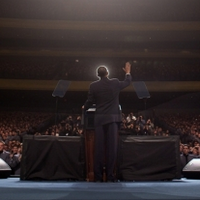When President Barack Obama accepts his Nobel Peace Prize this week in Oslo, it will likely amplify the grumbling of those who think he is being rewarded for circumscribing American power. Obama's diplomatic efforts to date have elicited complaints that he is "starry eyed" and "weak," too solicitous of foreign leaders, and even "accommodating" of America's enemies.
These criticisms miss the point. Barack Obama isn't weak. He just helms a superpower whose power and influence is on the wane. Even as it remains the most powerful nation in the world, the United States is becoming, as the Bush-era National Intelligence Council suggested last year, just one of several important actors on the global stage. In such a crowded landscape, the United States no longer has the leverage to shape international affairs to its liking.
The Bush years' obsessive focus on the threat of jihadist terror masked these changes. As globalization continued its uninterrupted march, new power centers were created, along with an emerging crop of transnational and non-state actors, all vying for global influence and leadership. Now that the U.S. is emerging from the diplomatic wreckage of the past eight years, it is discovering that things are not simply returning to "normal." While Obama's election has undoubtedly opened up more opportunities for U.S. diplomacy, there remains a frustrating gap between America's capabilities and the broad manner in which it defines its national interests.

